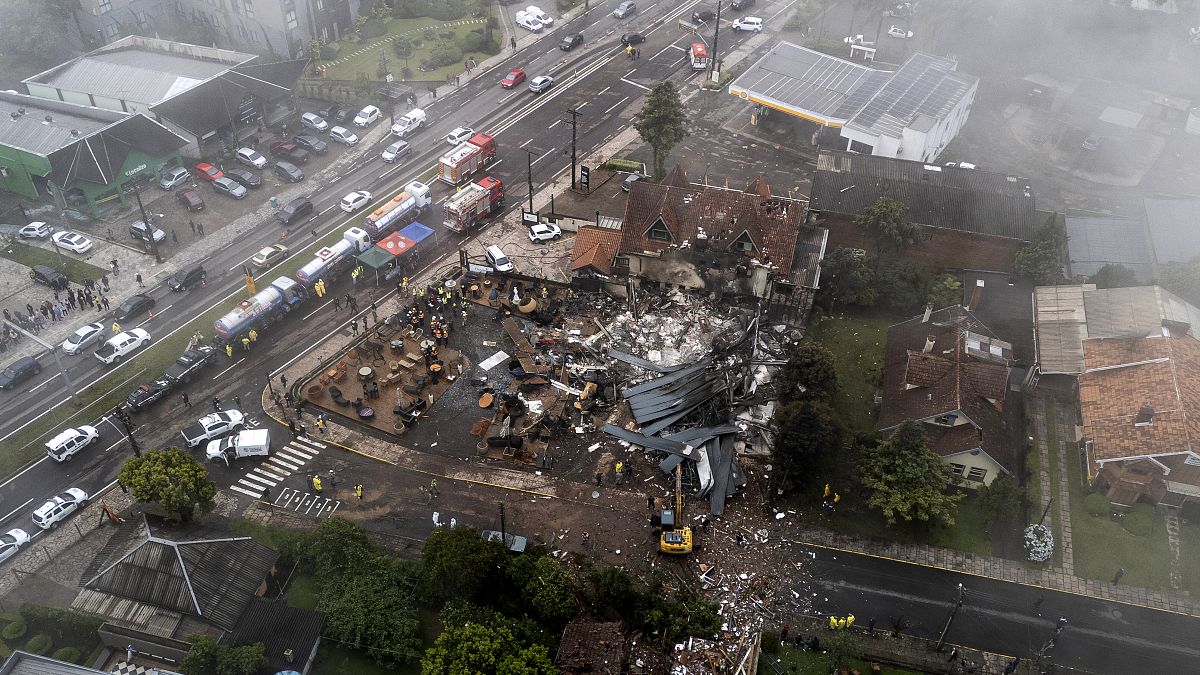Can Netanyahu maintain home support amid Israel’s multi-front fight?

Netanyahu’s coalition faces increasing pressure as Israel’s conflict with Iranian proxies intensifies, with calls from the US and EU for a ceasefire in Gaza.
As Israel raises its military stakes against the Iran-sponsored proxies, Prime Minister Benjamin Netanyahu is struggling to persuade the traditional Western partners that his muscular strategy is the only option to save Israel from doom.
Despite the US and the EU increasingly demanding a ceasefire in Gaza, the war has been extended to the Lebanese front.
Israel is under attack and is fighting against Iran’s proxies, which might lead to an eventual showdown with the regime in Tehran.
Meanwhile, the conservative-to-hard-right government led by Netanyahu — a populist Likud politician with more than two decades of experience — has been increasingly under pressure from a myriad of alleged scandals and conflict of interest accusations to claims of mismanaging the war against Hamas and its aim to liberate Israeli hostages in Gaza.
Yet, he managed to hold onto power and retain his position as Israel opened another front against Hezbollah.
How did he manage that, and what other cards does he have left to play?
Old prime minister’s last call
On 29 December 2022, an under-pressure Netanyahu formed a coalition cabinet with Israel’s ultra-conservatives.
The new executive was seen with scepticism by the more moderate parts of Israeli society, which increasingly took to the streets to protest against the government’s reforms, like the justice system overhaul. Yet, the events of 7 October last year have changed everything.
Initially, the massacre of 7 October was regarded by the Israeli population as a failure of the security forces and a personal blunder of Netanyahu, who campaigned on branding himself “Mr Security”.
Yet, eventually, the sense of emergency prevailed over the political disputes, experts say.
“The 7 October massacres changed the situation and brought about a government of national unity,” Gregory Alegi, a professor of politics from Luiss University in Rome, told Euronews.
“Every Israeli agrees about the need to protect and defend the country and make it safe. I think it is a mistake to think that some people are against the overall goal.”
Despite a permanent debate about the strategic choices of the government, the Israelis have the sentiment that they are fighting for the survival of their country, Alegi explained.
“There is little doubt that it is a government of national unity which agrees on the basic point of defending and preserving Israel, both as a state and as a place, a safe place for Jews and a symbol for Jews in the world. That has not changed. And it would be a mistake to think that we can.”
“How can they separate the different parties and bring the government down,” he asked.
The liberal centrists’ call of duty
After the attacks on Israel, the moderate liberal-centrist National Unity or Home Camp alliance joined the war cabinet, bringing the support of a relevant segment of the Israeli population that previously opposed the hard-right government.
The National Unity is led by two highly respected former IDF chiefs of staff, Benny Gantz and Gadi Eisenkot. Yet, they left Netanyahu’s cabinet by June.
Ganz resigned after Netanyahu’s rejection of his “six-point plan” backed by Washington on the future of Gaza and how to end the war.
Months after the shock of Hamas’ attack, political dissent prevailed again, especially after the pressure coming from the US and the EU, two crucial partners in the eyes of many moderate Israelis.
Moreover, for the first time in Israel’s history, the International Criminal Court filed a prosecution procedure against its prime minister, Netanyahu, and a defence minister, Gallant.
Furthermore, cohabitation with ultraconservative politicians like the Minister of Finance Bezalel Smotrich and the National Security Minister Itamar Ben-Gvir became impossible for Gantz.
The reasons for the 9 June resignation of centrist liberals are systemic, and four months later, they are still present: they revolve around widely differing opinions over the two-state solution and the illegal settlements in the West Bank.
Smotrich and Ben-Gvir’s parties are both radically opposed to the two-state solution and are against cracking down on the illegal settlers.
“The West Bank has been a problem, an issue, an international issue for a long time. And it is the only part which is at least nominally under the control of the Palestinian Authority. So, in many ways, it is a positive symbol and a negative symbol at the same time,” said Alegi.
“There is a sign of the fear that the extremists like Hamas might take over the West Bank as well. Clearly, the answer is not the indiscriminate Israeli settlement, clearly taking away property or demolishing houses either,” he explained.
“Quite apart from the legal basis, to create a climate of understanding might help at reaching a solution. So the West Bank is another significant problem”.
What’s next for Bibi?
Is Netanyahu a hostage of the extremists, or does he have a grand strategic plan no matter what his allies are?
His plans for the future could be as ambitious as effecting a regime change in Iran. Only last week, the Israeli PM addressed the Iranian people in a video message.
“When Iran is finally free, and the moment will come a lot sooner than people think, everything will be different … Our two countries, Israel and Iran will be at peace,” Netanyahu said.
The military pressure on Gaza and Lebanon has been growing, with more civilians dying, while French President Emmanuel Macron has called to halt the delivery of weapons to Israel.
The US democrats are increasingly puzzled by the political costs of the Israeli geopolitical strategy.
This could have a huge impact on the Israeli internal politics. Could Netanyahu be abandoned by the US?
“In the end, we have seen even just three days ago that the US Navy will always help shoot down rockets and missiles fired against Israel,” Alegi said.
“Make no mistake, that is not going to change. What might change is the external support, let’s say the theatrics, but the substance is going to remain unchanged, whoever runs Israel, whoever runs the United States,” he concluded.
World News || Latest News || U.S. News
Source link



